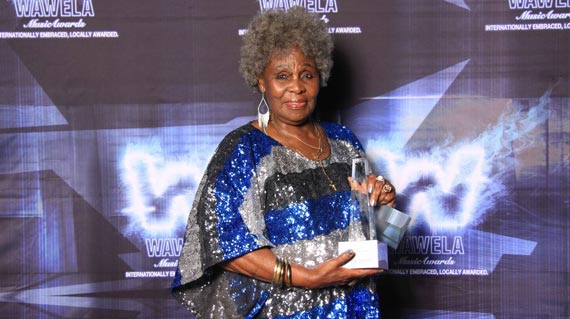
THEY don’t come any bigger than this. You will soon find out why from this article which it is my singular honour to write. The fiery Dorothy Masuka is a legend and though this approbation is sometimes carelessly accorded mere mortals.
AM Kudita Own Correspondent
But there is hardly much that is mere about the original Mama Africa who used her wit and pizzazz to climb the showbiz ladder in South Africa of the 1950 and 1960s. Even more tellingly, Dorothy Masuka gave the apartheid governments of those years a torrid time writing and recording songs that protested against, and mirrored the wretchedness of segregation via hard edged songs like Kutheni Zulu and Dr Malan.
The late Miriam Makeba was a great singer. But Masuka was both a great singer and songwriter. Makeba built her career on Dorothy’s songs. That dear reader is a historical fact. I suppose you may have been tempted like many others to believe that songs such as Pata Pata were written by Makeba. No, that song which has become a South African staple alongside, Hamba Nontsokolo, Iqika, and Khawuleza belong in the Masuka original song catalogue!
Masuka was the wind beneath Makeba’s wings in the same way that Oskido is to South Africa’s house/kwaito movement. The only difference being that everyone knows who Oskido is outside of South Africa.
We may not say the same for Masuka though. But she is a legend alright. And vitally, she is the very special guest artist at the National Art Merit Awards (Nama) on the 15th of February a few days away to be held in Bulawayo at the Rainbow Hotel. The Beginnings Now let’s consider where to start. Born in the then Rhodesia in 1935, she moved to South Africa as a 12-year-old to pursue her schooling at St Thomas Catholic Boarding. She would escape from boarding school to flirt with her music career and join Philemon Mogotsi’s African Ink Spots in Durban.
The music bug had bitten her and she eluded school again, fleeing to Bulawayo and making acquaintance with an upstart jazz group called the Golden Rhythm Crooners (some of whose members are in the current Cool Crooners!).
At age 16, in 1953, the itinerant Masuka’s self-penned song Nontsokolo was recorded after being finally released from a school. The song was written on a train ride to Johannesburg and became runaway hit.
- Chamisa under fire over US$120K donation
- Mavhunga puts DeMbare into Chibuku quarterfinals
- Pension funds bet on Cabora Bassa oilfields
- Councils defy govt fire tender directive
Keep Reading
Subsequent to that she recorded Pata Pata which Makeba made globally famous. Just as the legendary Louis Armstrong sang: “It don’t mean a thing if it ain’t got that swing”. Dorothy’s compositions have a bluesy jazzy swing tempo which was central to the music of the time i.e. marabi and kwela laced with penny whistle.
Diva-dom By the age of 16, Masuka was a glamour girl adorning posters that in turn adorned the walls of many a Sophia town young men’s walls. Drawing her musical inspiration from United States jazz and blues singing legends such as Ella Fitzgerald and Billie Holiday, Masuka’s stock soared.
The likes of Dolly Rathebe, native South Africans had to reckon with the young chanteuse.
The outrageously gifted newcomer became the lead singer in Alf Herbert’s African Jazz and Variety show. Around this time even Miriam Makeba and Hugh Masekela who were with her in that project were playing second fiddle to Dorothy Masuka! Groups such as the Manhattan Brothers who did harmony were her backing band at some point.
Warrior Queen The bubble would soon burst for Masuka though, as she began to delve into a political commentary in music proving that she was not just some brain less , hedonistic air head out for a good time. The apartheid authorities especially began to trek her movements around Sophia town as her protest art began to crystallize.
In this sense Masuka is the quintessential artist, singer-songwriter, warrior queen of the African peoples in their struggle for self determination and a progenitor of protest music way ahead of musicians such as Aretha Franklin, Bob Marley, Bob Dylan and Makeba.
In 1961, the master for her song Lumumba was confiscated by the South African security forces. Unvanquished she wrote Dr Malan which again was seized making it an offense for any one to even listen t the songs. During this time Dorothy Masuka would return to Zimbabwe then Rhodesia to escape the prying secret service goons shadowing her movements because her material was commentary too keenly on the sociopolitical fabric of the time in South Africa’s troubled and persecuted townships.
Exile years It is around this time that she visited Malawi, Zambia, Kenya and Tanzania among other East and Central African countries providing the soundtrack to their own freedom campaigns e.g. Tom Mboya’s mass mobilisation campaigns in Kenya.
Typically, the original Mama Africa warrior queen wrote songs in Swahili such Kunguni lending her weight to fellow Africans’ struggle alongside her colleague and friend Miriam Makeba.
Escaping to Zambia from Rhodesia due to trouble with the then regime and largely because of her politics, Dorothy Masuka stayed in living a rather mundane life on a regular job as an air hostess putting the music on hold.
Returning to South Africa would not have been an option at this time when Nelson Mandela and the ANC leadership had been detained and sentenced to life in imprisonment on Robben Island for treason.
Political animal Ever the political animal, one of the highlights of her career would perhaps have to be moving to London and playing on big stages such as the London Palladium and Wembley Stadium during the election campaign of left leaning labour candidate Harold Wilson who went on to become British Prime Minister.
In 1981, she came back to Zimbabwe resuming her music career only to leave for South Africa after Nelson Mandela had been freed from Robben Island.
In South Africa, this writer met Auntie Dot as she is known at the offices of the South African Music Rights Organisation where one see the awe and respect she is held in by the South Africans. Thankfully still, the South African government accorded her one of that country’s highest accolades: the order of IKHAMANGA in silver in 2006 and her citation reads as follows:
Ultimately, Masuka was also inducted into American Hall of Fame in 2002.
She is a credit to our nation and indeed a living legend, a national treasure. Rather, she is a global icon.
Welcome home mama Africa!










